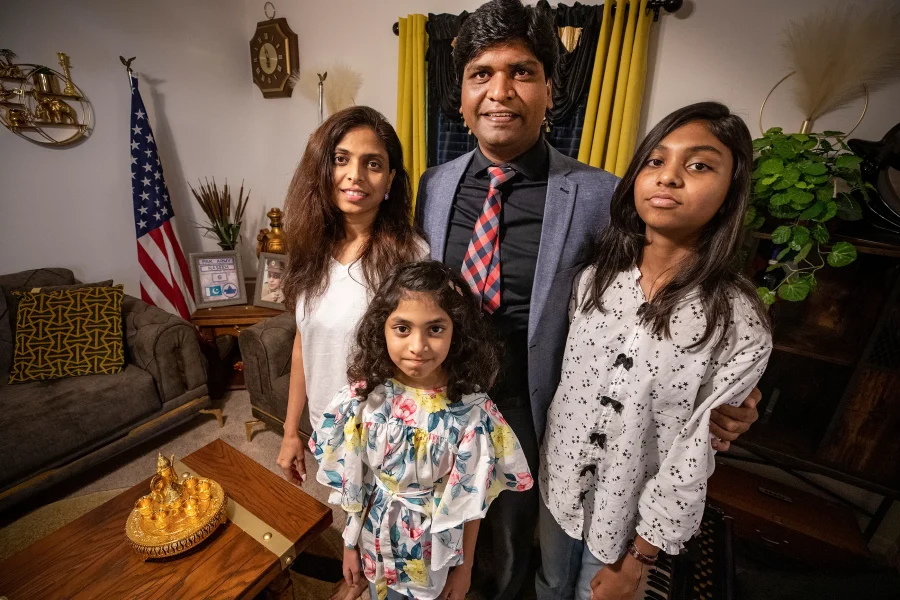For six years, Junaid Saqib’s wife and two daughters knew him only as a face on a computer screen and a voice on the phone.
Separated by nearly 8,000 miles, Saqib and his family existed in different realms. As his daughters prepared for school in the morning in Pakistan, it was late at night in Lakeland, where Saqib resided.
And for six years, Saqib missed receiving “cozy hugs” from his daughters. The family rupture has now been repaired. Saqib’s wife, Naseem Naz, and their daughters — Imsaal “Cherry” Junaid, 11, and Mishmal Junaid, 9 — arrived in the United States on May 2 and are now living with Junaid at his home in North Lakeland.
“It’s a great thing for us that we are together,” Naz said. “It’s major happiness for our family.” Saqib fled his native Pakistan in 2017 after deciding it was unsafe for him to remain. As a Catholic, he was among only 1.6% of the Pakistani population who identify as Christians in a nation where Islam is the official state religion. In 2003, Saqib founded the Pakistan Minority Rights Commission, and he gained national prominence as an advocate for the fair treatment of religious minorities.
That status put him at risk in Pakistan, especially as the Pakistani Taliban — an ally of the pro-Muslim militant organization in neighboring Afghanistan — emerged and began carrying out attacks.
In 2013, suicide bombers affiliated with the Taliban detonated blasts in a Peshawar church, killing an estimated 300 people, including 11 of Saqib’s relatives, he said. Despite such violence, Saqib and the PMRC continued to operate. Meanwhile, Saqib became a minority spokesman for a political party and twice ran unsuccessfully for a seat in a provincial parliament.
Saqib organized a demonstration that drew coverage from news outlets, and he appeared on TV saying the PMRC would oppose terrorism against non-Muslims. He soon began receiving threatening phone calls during the night, he said, and he found a letter slipped under his door warning that he would be killed if he did not desist.
Saqib decided to leave Pakistan, even though it meant separating from his wife and daughters, then ages 2½ and 4½. After an interval in Thailand, he came to the United States, supported by a Canadian pastor and missionary who had met him during a trip to Pakistan.—Agencies










